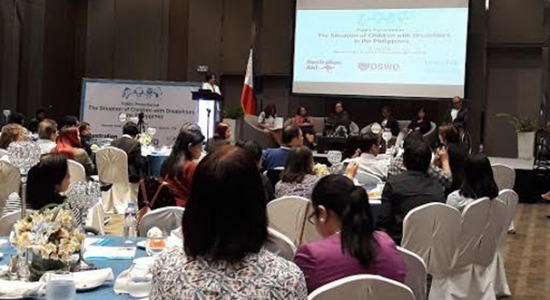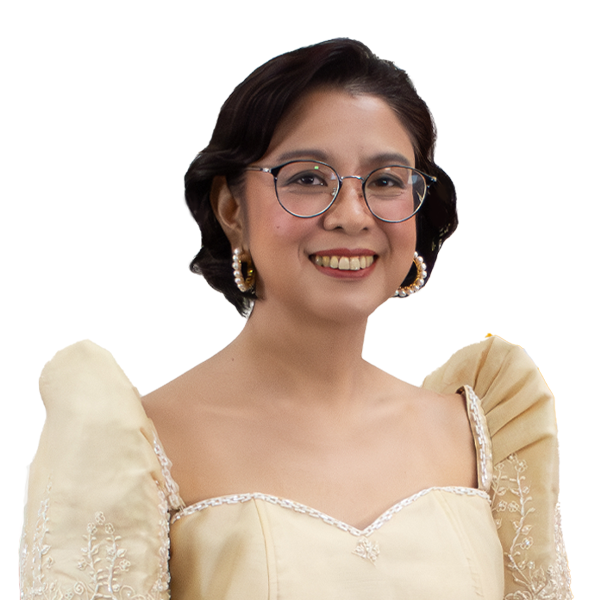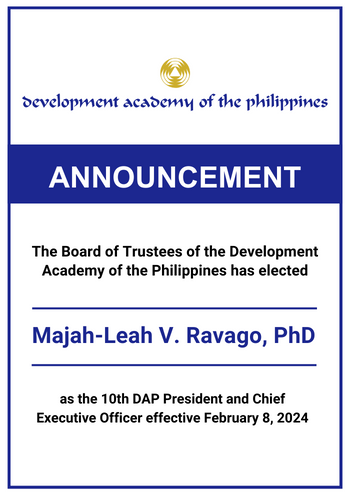
The Development Academy of the Philippines’ Center for Governance presented the key findings of the study on the situation of children with disabilities during its public presentation commissioned by the United Nations Children’s Fund (UNICEF) last July 24 at the Novotel Manila, with the findings showing that the 26.56 percent poor Filipino children affected do not yet have a strong referral system.
The results of this qualitative study showed that one in every five persons with disabilities is a child aged 0-14, with around 26.56 percent poor Filipinos with disabilities being children. The findings, however, showed that there is still no inclusive service framework and a
strong referral system that integrates the different social services for these children, and that the link between poverty and disability is often missed out while access to services remains a challenge.
The DAP’s project manager and lead researcher Jannis T. Montañez emphasized that aside from poverty, access to social services is also compounded by lack of data, weak governance, and discriminatory attitudes related to disability in general. She also shared observations about parents who have different misconceptions about their child’s disability and those who are not aware of the services they can avail of for their children.
A panel of reactors from key stakeholders raised some questions and comments about the study and also shared their personal experiences and current efforts to help improve the situation of children with disabilities.
The members of the panel included Wilma Guillen of the Philippine Statistics Authority, Normina Mojica of the Council for the Welfare of Children, Abner Manlapaz of Life Haven Center for Independent Living, and a mother and her child with disability.
The event was organized by the UNICEF and was attended by different stakeholders from the public and private sectors.
Australian Ambassador to the Philippines Amanda Gorely, Acting Social Welfare and Development Secretary Virginia Orogo, the National Council on Disability Affairs’ Mateo A. Lee Jr., UNICEF Philippines Officer in Charge Julia Rees, and DAP officers led by Senior Vice President for Programs Magdalena L. Mendoza also attended the event and expressed their support for the promotion and protection of the rights of children with disabilities.
The DAP research team conducted such activities as desk review, key informant interviews, and focus group discussions with key stakeholders from July to November 2017. Results were first presented in a validation workshop last February 26 prior to the completion of the final report in April 2018.
Ms. Montañez managed this research project for the DAP-CFG, with Marie Jay Kamille Dayhon as the lead writer, and with technical support from the Center for Governance and Sustainable Human Development Program. Technical guidance was provided by key experts like Dr. Eduardo T. Gonzalez, Dr. Lina B. Laigo and Dean Marie Therese Angeline P. Bustos.
The DAP was tapped by the UNICEF to undertake this 10-month research project, which is part of the UNICEF’s project with the Department of Social Welfare and Development, with support from the Australian Embassy.
A policy brief was also produced by the UNICEF based on the 2018 report of this study and may be accessed through the UNICEF Philippines website www.unicef.org/philippines.




